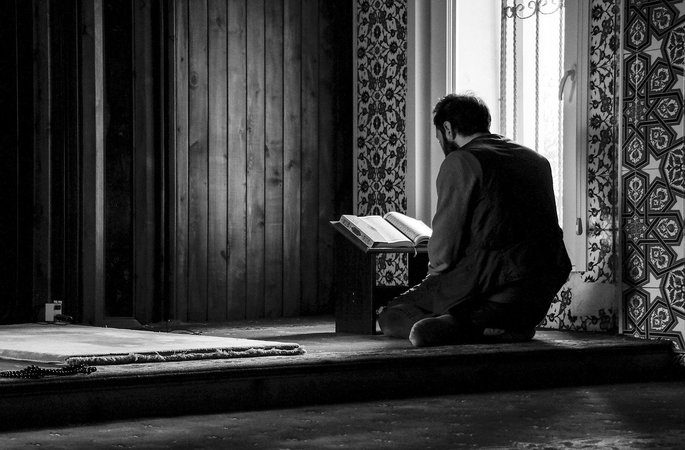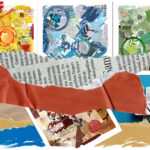Sri Lankan context and the dire need for Internal reform of religious communities
Like every year, we celebrated our Independence Day on the 4th of February 2021. However, it was earned by our forefathers without much struggle from British rule. There were no freedom struggles like India’s case.
Anyhow, it was a remarkable event in the history of Sri Lanka. This blissful event was followed by several bitter experiences that divided and polarised the citizens into various groups. In that sequence, three decades of cruel war and the terror attack on 21/04 created an atmosphere where religious communities, in particular, have been divided further.
Each community, without any exceptions, purified itself and accused others. Politicians utilised this unstable phenomenon to gain more benefits for their silly purposes. At this juncture, the premier question for me is how we can rebuild a friendly environment where religious and ethnic sects will understand each other and become dynamic forces in developing the nation.
I firmly believe that independence is freeing the land from colonisation and freeing ourselves from ego, selfishness, and ignorance.
As an initial stage for a new era, “Internal reform” of each religious community should be widely focused and encouraged rather than accusing each other interchangeably.
Buddhist leadership should carry out an unprecedented and innovative attempt to revive Lord Buddha’s ethical teachings. The same applies to Hinduism, Islam and Christianity as well. As a Muslim, here I prefer to highlight a few points on the internal reform project that the Muslim community should carry out at the moment.
Internal reform of Sri Lankan Muslims should consider two different dimensions, the context they live in and the text they go through for their religious references.
Reform starts with a comprehensive understanding of the context they live in and a courageous, critical reading of their status quo. Various fields such as education, politics, economy, religious studies and authority, art, culture and gender perspective have to be analysed profoundly employing scientific research methodologies.
For instance, there are several questions in the education sector: What was the purpose of initiating separate Muslim schools where the majority of the students admitted were Muslims. In contrast, only a few were admitted from other religions? What are the consequences, either positive or negative, of this particular system of education? If the results are undesirable, what would be the alternative system to be initiated?
In politics, Muslims should go into an in-depth analysis of the pros and cons of both the ethnocentric party system and engagement in the national party system. Muslims should be encouraged to learn the religious philosophy, clerical system, family structure, customs, traditions, and rituals of other faiths to understand their neighbours’ nature, lifestyle, and world view.
Reform in religious seminaries that produce future spiritual leaders is essential. The curriculum, pedagogical system and teaching methodologies of these seminaries are some critical areas that need to be analysed. Another vital area to focus on in the reform project is religious leadership and its structure while addressing its working scope.
For instance, if religious leadership’s scope is broader than religious affairs, a critical argument must put forward whether it is capable of tackling the socio-economic and political problems of the community as well as of the nation. This question arises primarily due to its members’ attitudes, who graduate from traditional Madrasas without having deep knowledge in social and human sciences. Who are the other groups of experts to be involved in this project? To make a bridge between scholars of text and scholars of context, what mechanism should be employed?
The questions mentioned above are only a few of many sets of questions to be considered. As mentioned in the previous paragraphs, a comprehensive understanding of the existing context is essential.
On the other hand, for Sri Lankan Muslims, a holistic approach to the text, Qur’an, and Prophetic traditions is also inevitable. As a first step, they should determine not to constrain themselves into engaging only with the traditional opinions of scholars who went through the text to get solutions for their context. Instead, contemporary Muslims should go directly to the text, as done by the traditional scholars, while considering the existing context to abstract solutions for the prevailing problems and crisis.
This take does not mean that we should throw away all the opinions, methodologies and approaches adopted by the traditional scholars. In contrast, we deeply study them to follow the methods by which they constructed pragmatic solutions from the text. Many contemporary scholars, such as Tariq Ramadan and Hashim Kamali, have outlined different approaches and perspectives on the reformation process.
We, Sri Lankan Muslims, should go through the efforts of contemporary scholars. They have tried being faithful to the text and should abstract lessons from their views to reform ourselves and ultimately contribute to the nation in various disciplines. To further illustrate what I have mentioned here, I prefer to come out with an approach to understand religious texts, introduced by Dr Jassir Auda, a well-known Canadian scholar:
There are three stages to be followed:
Firstly, all Quranic verses and prophetic traditions related to the particular topic should be gathered. We take the medical field as an example and select only a few Quranic verses and Prophetic traditions related to the field:
* and when I fall ill, is the One who restores me to health (Shu’ara 80)
* In their hearts is a disease, and so God lets their disease increase (Baqara 10)
* Wherein there is health for the man ( Nahl 69)
* Nor does blame attach to the sick (Nur 61)
* He will shower upon you heavenly blessings abundant and will add strength to your strength (Hood 52)
* Thus, step by step, we bestow from on high through this Qur’an all that gives health (Israa 82)
* The ill should not be taken to the healthy ( Sahih Muslim)
* None of my companions must tell me anything about anyone, for I like to come out to you with no ill feelings (Abu Dawud)
* Tariq bin Suwaid asked the prophet about wine, and he forbade him. When he told him that he made it only as medicine, he replied it is not a medicine, but it is a disease (Muslim)
* When a physician consulted the prophet about putting frogs in medicine, he forbade him to kill them (Abu Dawud)
* There is a right of your eyes upon you and a right of yourself upon you and a right of your family upon you (Sahih Muslim)
Secondly, the collected texts, Quranic verses and prophetic traditions should be analysed and categorised as follows:
* Objectives: Cure, Strength, Health and Healing
* Concepts: Seeking knowledge, Sickness, Medicine, Human, Moral ailments, Rights
* Groups: Scholars, Community, Animals, Tree
* Universal laws: There is a cure for every ailment; cure is from God
* Values: Mercy, Help, Equity
* Proofs: Seeking means
* Commands: Seek medicine, Body is a responsibility, Make endowments, Preserve innate nature
Lastly, the experts and professionals from the medical field and the experts with various fields such as strategic studies, disciplinary studies, fundamental studies, phenomenal studies, and religious studies should sit together to draft theories and principles in the field.
Finally, the expert panel has the responsibility of producing theoretical and practical solutions for the crisis in the field. This approach, according to Dr Jassir, can be applied to other fields as well.
I argue that we should study new approaches and interpretations rather than depending only on traditional methods. It is essential to pave the way for new ideas that contribute to enriching society and the nation as a whole.



